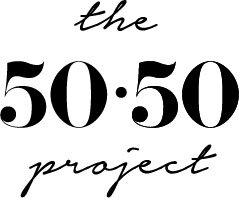Coffee with Dominic Ford
Dominic Ford
EntrepreneurChairman of BAGS (British Greyhound TV Service), Vice Chairman Association of British Bookmakers, Owner of Roar Betting, Director in Scantronics
Age: 52
Coffee at White City House, 101 Wood Lane, London W12 7FR
Describe your career path in two or three sentences including any twist or turns ending with where you are now and where you see your future.
I’ve gone from Chartered Account to entrepreneur. For the first fifteen years of my career, I was pretty corporate working as a Finance Director at big companies including Conran Restaurants and Gala Coral Group. Then in 2006, I set up my own business — it hasn’t always been the best financial decision but personally, it absolutely has.
What decision / experience proved to be the most helpful to your career?
Arguably, the two best decisions I made was one, to become a chartered accountant and then two, to quit and become an entrepreneur. Being an accountant can sometimes make you feel trapped, because the path can be lucrative, making stepping off and leaving the rewards behind harder. However, the decision to leave freed me. Was it a good decision? There is still a significant amount of respect to having a blue-chip professional career which is a benefit in the early days of entrepreneurship. Some people assume you have almost mystical powers if you been an accountant but you don’t. You probably just have a very well developed bullshit detector, which can be just as useful.
What do you think are the most important qualities for sustaining a fulfilling career(s) as you grow older?
I love that Japanese word Ikigai… which means sense of purpose. Supposedly, there is no word for retirement in Japanese instead you have Ikigai — the reason for getting out of bed in the morning. To be fulfilled, I want to work. I don’t embrace the idea of retiring. The common theme of every study I have read about people living to be 100 is that they worked for as long as they can. This suggests that the answer is not working crazy hours and then stopping but instead finding a sustainable balanced way to work — perhaps 25 to 30 hours per week for as long as possible.
What advice would you give your 20 year old self knowing what you do now?
Be brave and don’t be proud.
What are the biggest challenges for people wanting to make a career re-entry or re-invention later life?
My career is a zig zag, it is not a linear thing. I bought a new business at age 51, so that is one way to start a new career! All your experiences are relevant but you have to be willing to work hard to make it succeed. Materially, you might not be as hungry as you were at age 22. Comfort can kill ambition but we need the fulfilment of work. So be open minded to what will satisfy you. It doesn’t necessary have to be getting someone to employ you.
What do you think are the opportunities for people wanting to work in their 50s and 60s and beyond?
If you are flexible and willing to work hard, the opportunities are still there but you have to be willing to go access them in ways you may not be familiar with. For example, it might not be getting someone to employ you outright but instead finding a way to make yourself useful in some way as a means to show people what you are capable of, you need to be creative in your approach. Curiosity is also very helpful, ask people about what they do and how their business works. Keep your antenna up because you never know where the next opportunity might be lurking.
What is your top tip for staying relevant in today’s job market?
Being open minded to what's changing and also remember that your experience still counts for a huge amount and whilst the world is changing and becoming more digital it doesn’t mean all the other non-digital experiences counts for nothing, they are still relevant.
Recommendation: Favourite book to read, podcast to listen or website to browse while drinking coffee.
If you are interested in learning more about Ikigai then I can recommend this Ted Talk by Dan Buettner or reading What Makes Life Worth Living? How Japanese and Americans Make Sense of Their Worlds by Gordon Mathews.

